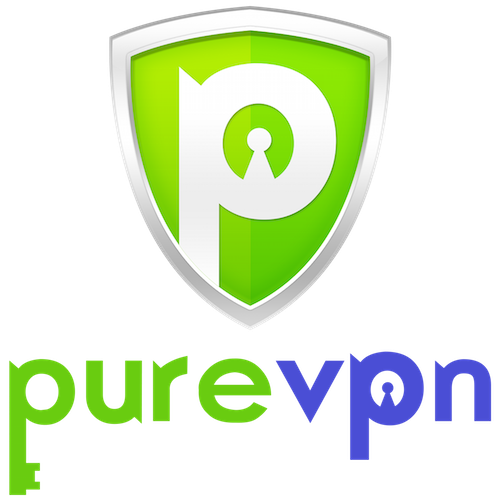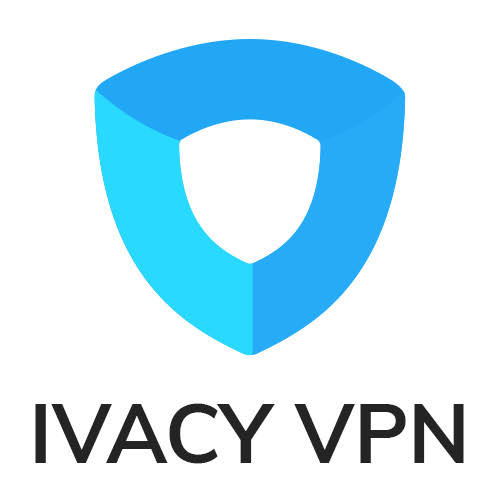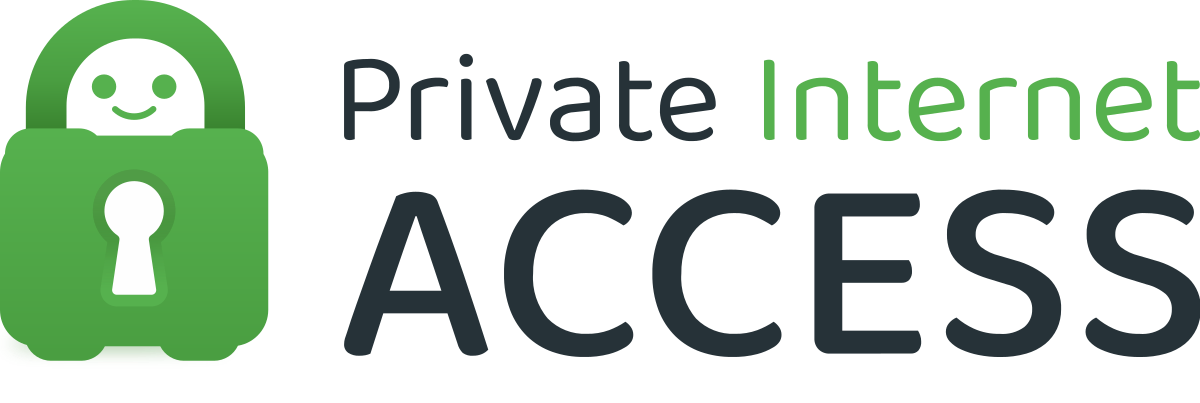Best VPNs to Use in the UK (2024)

- Always evades internet control in the PRC
- Keeps ahead of the Netflix VPN detection algorithm
- Benchmark tests show excellent speed

- More US city locations than its rivals
- Includes malware protection
- No-logs policy

- No limit on the number of devices you can connect at the same time
- SOCKS5 proxy, which its main rivals don’t have
- More VPN servers in more US cities to dodge blackouts
The United Kingdom is famous for a lot of great things, like tea, Windsor castle, and the London Eye. Something else it’s infamous for is the amount of surveillance that takes place within its borders. The Investigatory Powers Act, also called the Snoopers Charter, gives the UK government legal justification to monitor a variety of different communications, including telephone calls and Internet activity. If you live in the UK, work in the UK or are just visiting on holiday, and are concerned about your privacy, using a VPN is not only smart – it’s a must.
A VPN can help ensure your privacy and security, and allow you to move past content barriers that local networks may have, including the blocking of certain websites and bandwidth throttling. VPNs offer freedom and privacy, but with so many on the market, you may find yourself overwhelmed by the sheer amount of options available. If so, keep reading…
The seven VPNs I’ve outlined here are amongst the best you can get. And with a variety of different options as it relates to affordability, security, server selection, ease-of-use and privacy policies that protect your anonymity at all possible costs, you really can’t go wrong with any of them.
Things to consider when choosing a VPN
When shopping for a VPN, I would encourage you to keep the following in mind as you evaluate your options:
- Protocols: What protocols are supported? OpenVPN provides the best security. PPTP is pretty outdated and uses weak encryption, so I would stay away from it if you can. LT2P/IPsec isn’t quite as strong as OpenVPN, but is a good option for mobile devices.
- Servers: How many servers are there, and where are they located? More servers in more areas give you more options when geo-spoofing your location, and access to content from more areas of the world, like the Japanese version of Netflix to watch Japan-exclusive documentaries.
- Number of connections: How many simultaneous connections are allowable? If you want to set up VPN access on both your phone and your PC, or for multiple family members, you’re going to need a VPN that will allow for multiple simultaneous connections.
- Logs and privacy: Most VPNs don’t log data about user activity, like connection dates and times, IP addresses, and the amount of data transferred. Some VPNs may log a minimum amount of information to assist in maintenance, however. If privacy is the main driver behind your decision to use a VPN, here’s a good rule of thumb to follow: the less information about you that is logged, the better.
- Payment methods: If you want to remain as anonymous as possible, VPNs that accept cryptocurrencies like Bitcoin or other untraceable payment methods like gift cards are recommended.
- Kill switch: Does the VPN have a kill switch? A kill switch will stop programs from connecting to the Internet if your VPN goes down. A good VPN provider will have a kill switch to protect your anonymity.
1. ExpressVPN

- Always evades internet control in the PRC
- Keeps ahead of the Netflix VPN detection algorithm
- Benchmark tests show excellent speed
British Virgin Islands-based ExpressVPN maintains more than 1,000 servers in 94 countries and offers fast connection speeds coupled with 24/7 customer service. Many of their servers support P2P and BitTorrent, and there’s a smart DNS option to help you geo-spoof your location. A kill switch comes standard with all their plans, the UI is extremely easy to use, and there are apps for many different types of devices including Playstation, Xbox, AppleTV, and Kindle Fire.
Pros
- Installs on routers
- Simultaneous connection allowance of five devices
- Split tunneling
- Large choice of server location
- Very strong connection encryption
Cons
- One of the most expensive VPN services
- China blocks its main website (but not functionality)
- Live chat support is not always responsive
ExpressVPN has 3 different pricing plans to choose from:
- A 30-day plan costs $12.95
- An annual subscription costs $8.33 per month
- A 15-month plan is $6.33 per month
There’s no free trial, but there is a 30-day money-back guarantee. The biggest knock is that you’re capped at 3 simultaneous connections.
ExpressVPN performs admirably well during tests, with servers in the US maintaining a normal download speed of 20 to 25 Mbps. Even remote servers like those in Pakistan maintained a steady speed of around 18 Mbps. Latency clocked in around 85% of a normal, direct connection and downloads around 80%.
Their Terms of Service state that they will never log traffic data or browsing activity, but they do collect data related to server selection, connection dates, and the total amount of data exchanged. IP addresses and connection times are not logged.
2. NordVPN

- More US city locations than its rivals
- Includes malware protection
- No-logs policy
With over 1,000 servers in 60 countries, NordVPN is a user-friendly service that comes packed full of features like a kill switch, ad blocking, malware blocking, P2P support, streaming tools, and DNS leak blocking. The user interface is straightforward, with customization options neatly organized. The website isn’t quite as easy to navigate, however, which makes finding user support options difficult.
Pros
- A large number of servers
- Threat protection with a proprietary security system called CyberSec
- Split tunneling
- Obfuscated servers for China and other locations where VPNs are discouraged
- No-logs policy
- Automatic wi-fi protection
Cons
- Parts of the server network have poor download speeds
- No servers in India
- Onion over VPN can be slow
NordVPN has four subscription options, each of which allows for 6 devices to be connected at the same time. This is perfect for families and tech geeks like me.
All plans come with a 30-day money-back guarantee. Nord accepts Bitcoin payments, as well as PayPal and credit cards.
- A month-to-month plan costs $11.95
- A six-month plan costs $7.00 a month, billed every six months
- An annual subscription is $5.75 per month
- A two-year plan drops down to $3.29 per month
NordVPN delivers consistent, but slightly slow performance. Ping dropped considerably when connecting to remote servers in places like India and Australia, yet download and upload speeds were fairly consistent overall.
NordVPN has a strict no log policy and does not record time stamps, IP addresses, traffic logs, or bandwidth. And since the company is based in Panama, it falls outside the jurisdiction of US and European data collection agencies.
3. IPVanish

- No limit on the number of devices you can connect at the same time
- SOCKS5 proxy, which its main rivals don’t have
- More VPN servers in more US cities to dodge blackouts
IPVanish has more than 700 servers in over 60 countries and comes standard with features like a kill-switch and automatic IP cycling. Installation and setup are simple, and the user interface is super intuitive. You can even filter the servers you want to connect to. Additional features include DNS leak protection, OpenVPN, and compatibility with Windows, OS X, iOS, and Android.
Pros
- Good at dodging blackouts on US sports streaming sites
- A large IP address pool
- Split tunneling available
- Strong IP leak protection
- IPVanish support is available around the clock via chat and email
Cons
- No app for Linux
- No browser extensions
- 30-day money-back guarantee only for the annual plan
- Prices increase after the first subscription period
- No malware or antivirus service
IPVanish has 3 different pricing plans, all of which allow for up to five simultaneous connections:
- A month-to-month subscription costs $10
- A three-month plan costs $8.99 per month
- An annual subscription comes in at $6.49 per month, payable in one lump sum
Payments can be made by credit card, PayPal, and Bitcoin. No free trials are available, but each subscription does come with a seven-day money-back guarantee.
Performance-wise, IPvanish is a bit of a mixed bag. Some tests were impressive, and improved speed by about 15%. Other tests actually cut download speeds by half. Results were inconsistent, yet the connection was always fast enough to be usable.
IPVanish’s TOS states that they don’t store logs like connection times, amount of data transferred, or IP addresses. Unfortunately, the company is headquartered in Phoenix, Arizona, and is subject to US legislation regarding privacy. So, if the NSA and/or FBI request certain information, they are required to fork it over. Keep this in mind if you’re looking for a high level of anonymity.
4. PureVPN

- Excellent client with pre-configured modes for streaming, P2P, privacy
- Kill switch
- Support for wide range of protocols, including OpenVPN
PureVPN comes packed with advanced features like IPv6 leak protection, a kill switch, and a split-tunneling option that lets you choose which traffic goes through the VPN and which goes through your regular ISP. And with more than 500 servers in 141 countries, they offer some of the best global coverage on the market. The cherry on top is their VPN browser, which gives users a speed boost of up to 20Mbps, regardless of the speed of their regular Internet connection. The biggest knock for me with PureVPN is that the user interface is pretty lackluster. It’s rather clunky for my personal tastes, and some options are hard to find since they’re buried in sub-menus.
Pros
- Excellent client with pre-configured modes for streaming, P2P, privacy
- Kill switch
- Support for wide range of protocols, including OpenVPN
- Great for newbies and experienced users alike
- Wide server coverage
- Good speeds
- 24/7 support
- Accepts Bitcoin
Cons
- No free trial
- 7-day money-back guarantee comes with restrictions
- No Netflix
- No BBC iPlayer
- Client is not as “one-click” as advertised, and troubleshooting requires technical skills
From a pricing standpoint, PureVPN is extremely competitive:
Unfortunately, there’s no free trial available, but there is a 7-day money-back guarantee and all 3 subscription options will allow you to connect 5 devices at a time.
- 30 days of service will cost you $9.99
- A six-month subscription is $7.99 per month
- A 2-year plan is $59.99
Performance-wise, PureVPN is great. They consistently maintain download speeds of 80%, and sometimes even improve on regular download speeds by up to an impressive 400%. Upload speeds are also pretty consistent with regular speeds and latency is around 5% higher than normal.
PureVPN logs the total amount of bandwidth used, and the amount of time you remain connected to any one server. The websites you visit, files you download, and connection dates are not logged. And since the company is based in Hong Kong, you’ll be safe from prying eyes and overreaching government agencies.
5. Ivacy

- Over 200 servers in 80+ countries
- Sleek, easy to use UI
- Customer support via email, Skype, and ticketing
Another Hong Kong-based VPN is Ivacy, which offers compatibility with many different platforms including Windows, Mac, Android, iOS, Linux, Xbox, and support for P2P connections. A non-stop server switching option is standard, which will let you change servers without any restrictions. There’s also no data cap to speak of. With over 200 servers in more than 50 countries, coverage is good, but the mobile client is rarely updated and customer support options are limited. Thankfully, Ivacy is easy to install and use.
Pros
- Over 200 servers in 80+ countries
- Sleek, easy to use UI
- Customer support via email, Skype, and ticketing
- 5 multi-login feature for one account
- 7-day money back guarantee
Cons
- No free plan
- Connection speed may vary
Ivacy offers three plans, all of which allow for up to 5 simultaneous connections:
- A one month plan costs $6.75
- A 6-month plans costs $5.75 per month
- A two-year subscription comes out to $2.04 per month
There’s a seven-day money-back guarantee on all plans, but you cannot get your money back if you’ve connected more than 30 times or used more than 7Gb of bandwidth, which is pretty easy to do. They do accept anonymous payments from Bitcoin and Paymentwall, but no refunds are available if this is your preferred payment option.
Ivacy tests well from a performance standpoint and delivers suitable upload and download speeds. Ping decreased when connected to the UK servers, but upload and download speeds stayed fairly constant.
Ivacy doesn’t log or monitor your online activities, nor do they store any data beyond your email address, so if privacy is a top priority for you, this may be a great option to consider.
6. Private Internet Access

- More locations in the USA, aims to provide a server in every state
- Makes excluding apps and sites from the VPN very easy
- Real customer service, not just a chatbot
Private Internet Access maintains an impressive 3300 servers in more than 24 countries, along with an even more impressive feature set that includes malware and ad blocking options, OpenVPN, and support for P2P. Customization options are limited, however, and you don’t have the option of selecting a specific server. You can only select a specific geographical area. Customer support is also a little lackluster, and no live chat option is available. The user interface is extremely simple to use, but lacks good design sense, at least in my humble opinion.
Pros
- PIA is one of the few VPNs to have a server in China
- Security features include malware, tracker, and ad blocker
- Good choice of dedicated IP address locations
- Antivirus add-on
- A strong no logs policy
- Easy to use VPN app functionality
Cons
- Can’t get into Amazon Prime or Hulu
- Doesn’t state how many servers it operates
PIA offers three subscription options, all of which support up to 5 simultaneous connections:
- A one-month plan costs $6.95
- A six-month subscription costs $35.95
- An annual subscription is $39.95
There are no free trials available, but they do have a 7-day refund policy. They accept payments by credit card, Paypal, Google Wallet, and Bitcoin.
Private Internet Access’ performance is OK, but nothing to write home about. Latency increases by around 85%, while upload and download speeds drop by anywhere between 15-25%. Not a great performance, but still very useable.
PIA records basic details like your email address and payment information, but that’s about it. So, if privacy is the driving motivation behind using a VPN, you’re in luck.